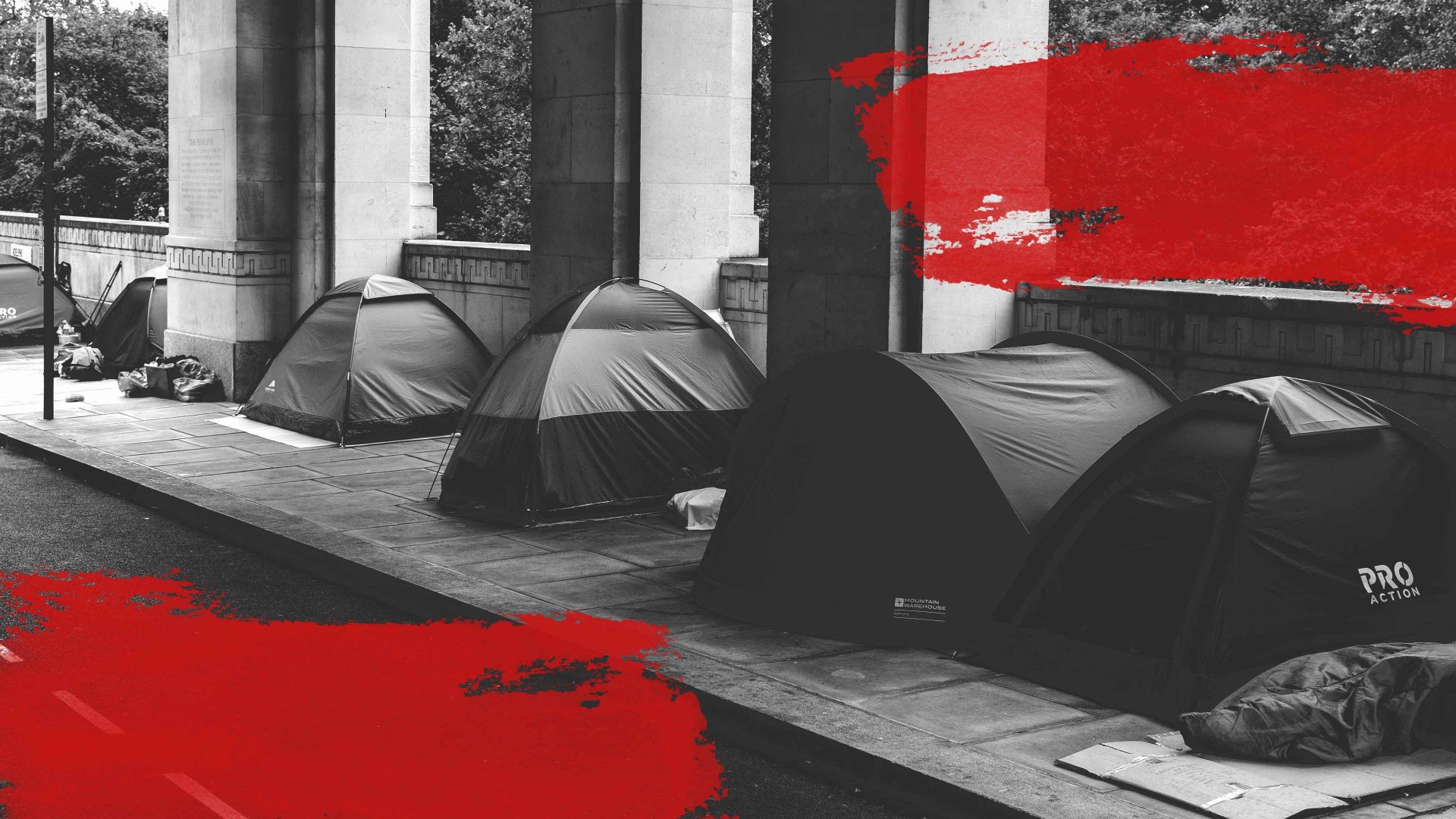It didn’t make it into the King’s Speech, but few of us will forget the now-sacked Suella Braverman’s recent attack on unhoused people. She wanted to stop anyone living in tents in public places, and intended to fine charities that supplied them with them.
“We cannot allow our streets to be taken over by rows of tents occupied by people, many of them from abroad, living on the streets as a lifestyle choice,” she declared. Rather than advocating a policy that might reduce homelessness, she went straight for the vulnerable just in time for winter.
Shelter and other housing charities reacted strongly against this mean-spirited and xenophobic rhetoric. So did most people with a heart. The idea that removing the possibility of using a tent would prevent people sleeping on the streets was bizarre.
Taking away their tents won’t do that, it will just make them more vulnerable. It will be that much more uncomfortable and dangerous for people sleeping under newspapers or cardboard. But perhaps that’s what Braverman dreams of, together with sending migrants to Rwanda.
In any case, her ridiculous comments have set me thinking about how a tent can be more than just protection from the weather and more than a way of finding some dignity and privacy for those living in a public place.
From the womb onwards we live much of our lives within spaces separated from the rest of the world. The modernist architect Ernö Goldfinger argued that we should think of buildings not so much as a kind of sculpture in which people live and work, but rather primarily as enclosed space. The scale, materials, and proportions of any building and any room affect us profoundly albeit usually pre-consciously, he believed. The role of the architect, according to Goldfinger, was to manipulate these variables to produce places that feel right to us (even though clients typically had no idea how the architect achieved those effects). For Goldfinger that meant using squares, circles, the A4 proportioned rectangle, the double square, and shapes derived from the Golden Section, building with clean lines and with modern materials in proportion to the height of a typical human body.
In a tent, the roof is so close, and the tent walls slope next to us, that tent-dwellers are acutely aware of being within enclosed space. They are also aware of the thin fabric separating inside from outside. But that needn’t stop them experiencing a tent as a place of psychological comfort. A tent can be a home just as much as a house can be.
The French philosopher Gaston Bachelard wrote interestingly about how our experience of habitable spaces is affected by the memories and associations from childhood that we carry with us when we enter them. In his book The Poetics of Space, he made a number of brilliant observations about how our very first experiences of home infuse our feelings about later dwellings. Our first house, and the formative experience of the “Non-I that protects the I” is a kind of refuge for us that we project on to other spaces. It shapes our dreams too.
To take a tent away from someone who has made it a home is, then, a particularly cruel act. It makes the homeless person doubly vulnerable – through loss of protection from the wind and rain, and from loss of that sense of the psychological comfort that an enclosed space can give. Even Plato’s contemporary, the philosopher Diogenes, who made a point of living as frugally as he possibly could – and had in fact opted for homelessness as a lifestyle choice – slept in an enclosed space.
As Jean-Manuel Roubineau in his delightful book The Dangerous Life and Ideas of Diogenes the Cynic points out, this wasn’t a barrel, as popularly supposed (barrels had yet to be invented), but a pithos, a large and probably quite smelly earthenware jar previously used for food storage. Diogenes wasn’t alone in living in a jar – Roubineau tells us that Pericles’ strategy of withdrawing behind the city walls for protection during the Peloponnesian war caused overcrowding in the city and made this kind of improvised shelter a necessity for many.
No doubt an Athenian Braverman, similarly blind to the relationship between government policy and destitution, would have argued that living in storage jars should be forbidden, and that empty pithoi should be smashed. Legend has it that a reckless youth did just that to Diogenes’s pithos, but then rather than leaving him out in the cold, the Athenian Assembly voted to provide him with a new one.



